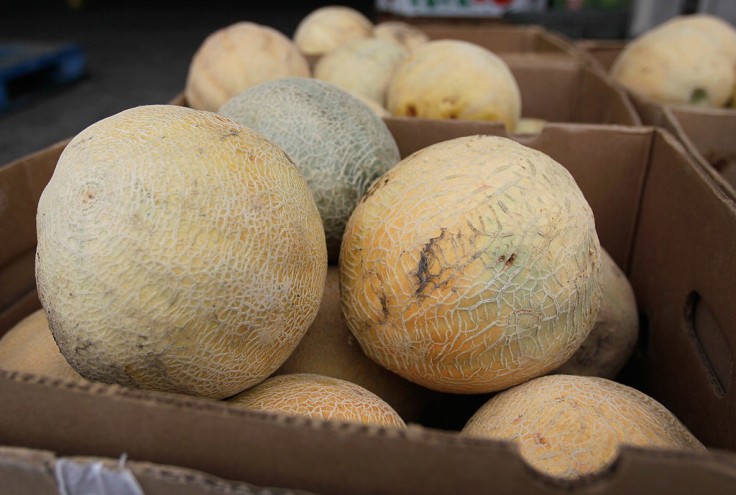
In a deeply concerning turn of events, the ongoing salmonella outbreak has intensified, leading U.S. health officials to significantly expand the recall of whole and pre-cut cantaloupes.
Over the past week, the number of reported cases has more than doubled, spreading across 32 states and heightening anxieties among authorities and the general public.
Cantaloupe Recall Extends to Three More Brands
As the relentless spread of the salmonella outbreak continues, health officials in the United States are grappling with a substantial surge in cases.
The recall of whole and pre-cut cantaloupes has been broadened to address the escalating crisis that now affects 32 states.
This alarming surge has amplified efforts to contain the outbreak, presenting a formidable challenge to public health agencies.
The U.S. Food and Drug Administration (FDA) has taken decisive action by expanding the recall to include three additional cantaloupe brands.
The total count now stands at six, encompassing Malichita, Vinyard, ALDI, Rudy, Freshness Guaranteed, and RaceTrac.
The contaminated fruits have led to nearly 100 reported cases nationwide, with Arizona, Ohio, Missouri, Wisconsin, and Minnesota experiencing the highest incidence.
Tragically, the situation has resulted in two fatalities in Minnesota, with 45 individuals currently hospitalized across the country.
Read Also: FDA Intensifies Efforts in WanaBana Recall as Lead Poisoning in Cinnamon Apple Purée Increases
Consumers Urged to Discard and Disinfect
At the forefront of addressing this crisis, the FDA has issued an urgent warning to consumers concerning the cantaloupe recall.
Initially covering Malichita, Vinyard, and ALDI brands, the recall has now expanded to include Rudy, Freshness Guaranteed, and RaceTrac brands.
Consumers are strongly advised to take immediate action by discarding any recalled fruits in their possession.
In addition to disposal, health officials stress the critical importance of disinfecting surfaces that may have come into contact with the contaminated goods.
Salmonella, a resilient bacteria, can persist on surfaces for an extended period, contributing to the spread of the outbreak.
Thorough washing with hot, soapy water or sanitization in a dishwasher is recommended to mitigate the risk of further exposure.
This proactive measure is crucial in safeguarding individuals and preventing the further transmission of the bacteria.
Symptoms of salmonella infection typically manifest within six hours to six days after consuming contaminated food, with diarrhea, fever, and stomach cramps being common indicators.
While most cases resolve within four to seven days, vulnerable populations, including children, individuals over 65, and those with weakened immune systems, may experience severe illnesses requiring medical attention or hospitalization.
How to Disinfect surfaces from contaminated goods
Preventing the spread of salmonella in your household begins with thorough hygiene practices and vigilant cleanliness.
Start by regularly washing hands with soap and water, especially after handling raw poultry, eggs, or any potentially contaminated food.
Clean kitchen surfaces, utensils, and cutting boards immediately after use, using hot, soapy water. To further eliminate bacteria, consider using a mixture of one tablespoon of bleach per gallon of water for disinfecting surfaces.
Separate raw meats from ready-to-eat foods in the refrigerator to avoid cross-contamination, and ensure that meat is cooked to a safe internal temperature.
Regularly clean and sanitize kitchen sponges and dishcloths, as they can harbor harmful bacteria. Additionally, be cautious with pet food and dishes, as animals can also carry salmonella.
By adopting these practices, you can significantly reduce the risk of salmonella contamination in your home and promote a safer, healthier living environment.
In conclusion, as the salmonella outbreak worsens and the cantaloupe recall expands, it is imperative for the public to stay informed and take proactive measures to prevent further spread.
The FDA's continued vigilance and swift actions underscore the severity of the situation, emphasizing the collective responsibility to ensure public safety and the importance of thorough surface disinfection to curb the outbreak.